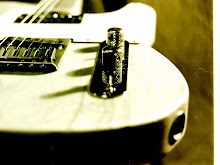One of the remembrances that particularly struck me was from Porter Bibb (gotta love these old Southern names), a teenage friend of Thompson’s who recalled how the aspiring writer would methodically retype prose selections from F. Scott Fitzgerald and Ernest Hemingway. While Bibb thought this was silly and pretentious, Thompson reasoned that it was a good way to get a sense of how it felt to write those sublime words.

Now that’s not something that I ever considered doing as a writer, but it makes sense to me. It seems like an effective exercise to get a feel for the particular nuance and flow of a master’s writing – from the writer’s perspective, as opposed to the reader’s. There is something to be said for the forced deceleration of writing out each word, rather than just reading it – seeing those words reveal themselves on the page as a result of the action of your fingers. It’s analogous to a musician tirelessly practicing the riffs of a favorite record – and, in so doing, honing skills and absorbing a style that, ultimately, are transmuted into something more personal and original.
And H.S.T. was certainly an original – in both prose and personality. That said, you can readily see the influences of Fitzgerald and Hemingway in his writing – particularly the more (ironically) lucid writing of his heyday.





I just finished listening to a book-on-tape (CD actually) version of Gay Talese’s fascinating memoir, "The Writing Life." It’s engagingly narrated by Talese himself. One of things I was intrigued by was the writer’s revelation that, like Hunter Thompson, as a young would-be-wordsmith he too had retyped F. Scott Fitzgerald’s prose to get an experiential feel for the master’s style. In Talese’s case, it was not "The Great Gatsby," but rather the lesser-known short story "Winter Dreams."
ReplyDeleteOops. Hemingway has one M :)
ReplyDeleteThanks for the comment ... and correction, Janine. Must've been thinking David Hemmings or something. An "F" in J101 for that!
ReplyDelete